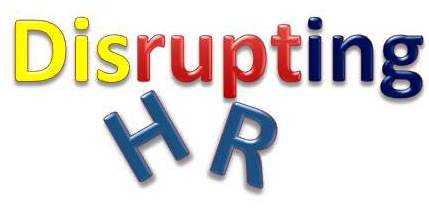As the end of the year 2015 approaches, it is time to think of the HR disruptions and innovations one is likely to see in 2016, and beyond. One may not have the perfect handle of all changes happening but directionally these are some of the likely occurrences.
Functional HR
HR as a function will see a lot of movement from the line function, laterally. Primarily, talent acquisition is leaning closer to business from a business impact standpoint. The same will be the case with learning as well. CLOs of the new world will emerge from the line, more than classical HR. Business HR, as a function, is another place where line execs can be developed as good people managers. This is also evolving as a career station for line executives in their development as business heads.
Talent acquisition will move towards synergising external markets and internal talent exchange, to ensure fulfillment. Both the processes will be smartly bolted. This will need technology investments.
Learning as a function has evolved well, but one sees huge disruptions here in the form of building ROI awareness, leadership building through technology and mobility, more real-time basis and self-empowered models. The virtual and e-learning aspects will get strengthened further.
Performance management will be of utmost pressure in 2016. While some may do away with this, others will reshape and few may question. However, the question most significant would be, ‘How does one ensure that performance assurance is the trajectory where everyone would like to move to?’ The need, maturity, risk-taking abilities along with a vision of the future will decide the course of action for each one of them.
HR Professionals
HR executives will build more business depth by performing interim line roles and shaping their individual careers. This will need to be pushed more as a self-initiative rather than waiting for organisations to create the tracks.
Future CHROs will need to be business savvy and have hands-on experience of at least two large HR COEs (category of employment).
The HR scatter will be around 10 per cent business HR, 15 per cent COEs and 75 per cent shared services in large established setups.
HR professionals will be nimble and will build themselves around capabilities and experiences of all kinds.
Startup Environment
Startups will have no internal HR system or will have a slim HR approach. They will borrow expertise and follow a solution-based model all the time.
Startups will pose a great threat to established corporates in the war for talent. They are maturing faster than we imagine and are taking the right risks. Also, talent in the market is aligned to move more towards startups, as they give rich experiences.
Startups will also see some failures. Therefore, core HR specialists experienced in handling and executing these will be in demand for dealing with these as assignments.
PEs (Private Equity) demand a different agenda and with a lot of investment flowing in, starting 2016, HR executives will need to have capabilities of delivering on the basis of project/purpose-based approach.
Tech & Digital
Digital HR will make inroads and will ensure that the function becomes predictive and moves more towards risk-taking rather than the safe harbour of enterprise people and process management. There will be specialised external outfits available to help enterprises in this area. Some HR managers will take the bold plunge and surge ahead.
Technology adoption by HR will determine HR servicing and HR costs.
Starting 2016, one will see five generations very actively deployed in the workforce. Staffing models and part-timers will mature too.
As one continues making machines smarter than people, large-scale skill displacements are likely to happen. It will see numerous career transitions to new beginnings.
Information, technology and processes will become subfunctions of HR support. So, the CHRO will spend more time with experts who can play a strategic role than with conventional first line of talent acquisition, learning & development, business HR, etc.
Impact on Organisations

As more and more end customers and stakeholders demand in-depth understanding of the people processes, it will be important for HR execs to develop customer-facing skills. 10 to 20 per cent of their time will be invested in this area if they genuinely want to alter the course of their companies/businesses.
Company results will talk more about people and leadership than they are currently doing. Business analysts will demand more of this and it will become important for HR to develop deep understanding of the area to face the market.
Organisational structures will be threatened with all kinds of turbulence. The only organisational structure that will sustain will be the informal value-adding structures. This will mean people will cut across hierarchies and derive energy and direction informally. HR will start recognising this aspect and use it strategically.
Management teams will become highly accountable for delivering results as one team and will get empowered more as business growth returns in 2016, hopefully.
Compensation trends will see experience as an important element being decomposed as a value for comparison against conventional CTC.
Line managers will be empowered more to decide on rewards.
Overview
All in all it is predicted that the function will emerge stronger but the journey to get there will be hard, though not impossible. HR managers are known to have large hearts and 2016 will test the combined strength of the heart and the mind. It is an exciting phase for HR where tenacity, knowledge, culture and processes will be built and the conventional span management style will be displaced by true new-age coaching models and institutions.
(The author is senior HR professional in transition to the new digital HR area. He is former CHRO, Vedanta).



